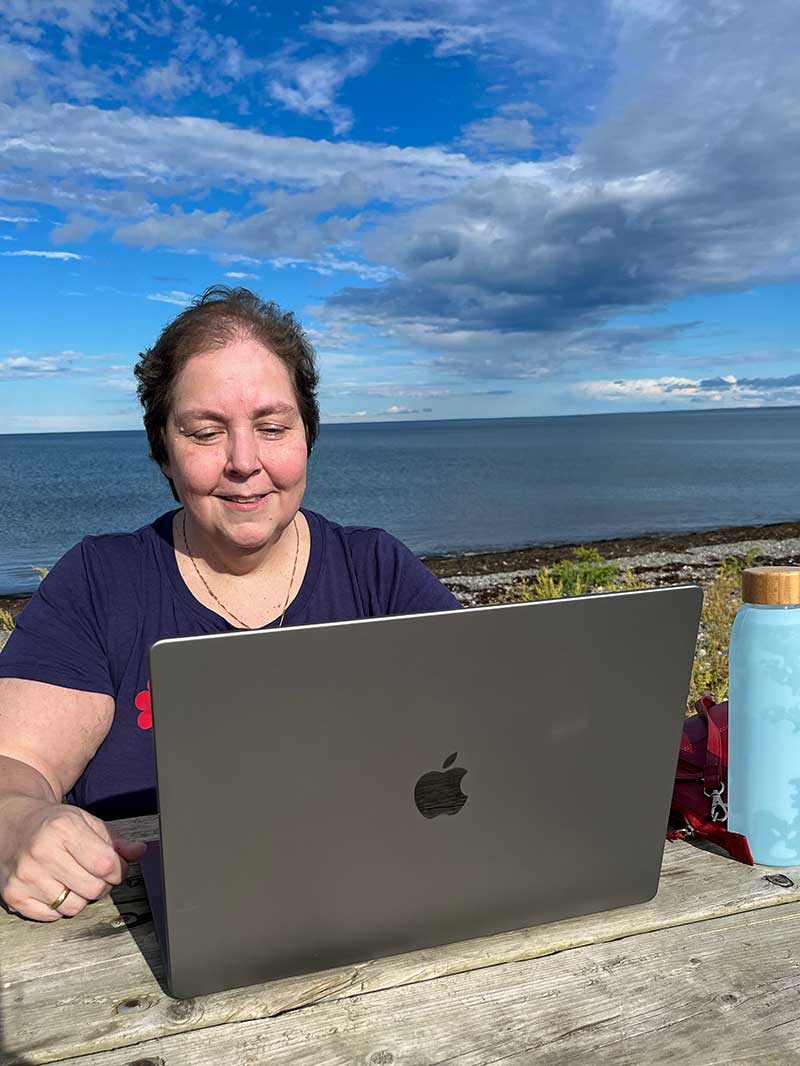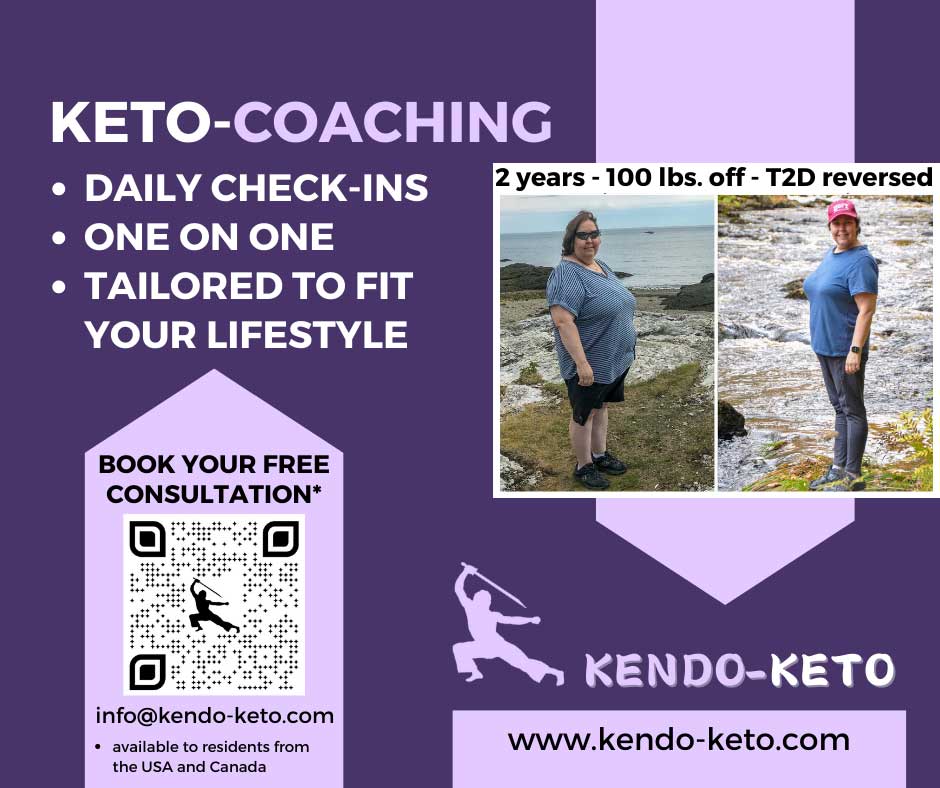How to succeed on Keto

Blog image created with Canva
Keto tips, coaching, and more
Most people want to be healthy and might want to lose weight or reverse type 2 diabetes.
Goals give us the motivation to embark on this new health journey. It's a good idea to write them down because any time we struggle, we need reminders of why we started a healthier life in the first place. It is also interesting how one goal, "wanting to lose some weight," might morph into "wanting to feel healthy" or "never wanting to feel sick again."
So, let's say we want to feel healthy, and we might want to lose weight and reverse type 2 diabetes. Big goals, in most cases very much achievable. But we need help.
Many doctors and dieticians parrot nutritional recommendations. These are not very helpful, as they do not address satiety and, in general, require you to leave the table hungry. While it often delivers short-term results, it is not a great long-term strategy.
The most often uttered diet advice is to eat less and move more. Oddly, this is the same advice given to someone who wants to work up an appetite before an all-you-can-eat buffet. Advice that increases appetite is not helpful when trying to lose weight.
What all this ill-conceived advice ignores is the role insulin plays. Hyperinsulinemia is the common cause of metabolic disease plaguing 93% of the adult population and a steadily increasing number of children.
After intensive research I chose Keto way of eating to heal. I have since added intermittent fasting and sometimes carnivore to my meal plan.
It turns out that the ketogenic diet offers many health benefits ranging from weight loss to reversal of many thought-to-be chronic health conditions, better mental health and many more.
If you are concerned about your heart health on the ketogenic diet, please watch this new video from Dr. Bret Scher at DietDoctor. It explains how keto decreases cardiovascular risk.
My answer to how sustainable keto is: Once you taste better health, you crave it.


The internet is full of resources. Sometimes it is confusing to weed out misinformation. Old beliefs are still perpetuated, pointing to the unfounded dangers of saturated fats, sustainability and more.
Seek out science-based information online or join our group, which has concise guides on how and why keto works. For visual learners, look at this selection of video lectures.
Resources we find valueable: Diet Doctor, Virta Health, SMHP, LowCarbUSA, and these YouTube Channels: Dr. Ken Berry, Protecting your N.E.S.T by Dr. Tony Hampton (check episode 16), LowCarbMD by Dr. Brian Lenzkes and Dr. Tro (check episode 213).
Finding support is vital. Without support, we easily fall into old thinking patterns. Diet brain tells us to eat in moderation, thinking that calories matter etc.
Having constant feedback, a reaffirmation that keto works, and seeing others succeed ... all that can help us keep motivated and on track.
Seek support from family and friends. Online support groups are equally helpfull. They offer fresh ideas, views and experiences from all angles, how to mix things up and keep the lifestyle interesting.
Temptations are all around us. How you respond to those temptations will determine your success. Until we internalize the health benefits of a clean diet, it is better to keep junk food out of sight. Products that are not immediately available are easier to resist. If it involves a trip to the store, our brains have the chance to reflect on our decision and make a better choice.
From my own experience, I am no longer tempted by junk food but sometimes struggle with keto-compliant treats.
While every new diet is easy to stick to for a short time, you need solid motivation in the long run. What is your goal (not just weight loss), but what do you dream of achieving? Feeling healthy, spending quality time with grandkids and friends, and being independent. Find what keeps you on track. For me, it is that I never want to feel sick again. My expectations of life can not be met with a poor diet.
My motivation: Nothing tastes as good as healthy feels.


While some people seem to breeze right through (this was true for me for the first year), expect roadblocks. These can be people wanting to talk you out of keto or sabotage you. It can be food addiction creeping back into your life. It can be life events that distract your focus. It can be bad advice from doctors and dieticians. Our food environment, in general, is a huge roadblock.
There are several strategies to keep roadblocks at bay:
- Ask friends to respect your decision. Tell them what health markers you improved and that you do not put too much faith in mainstream media giving health advice.
- Food addiction is a tough one. It is essential to have plans in place. This can be a pre-cooked frozen meal prepared in minutes, a mug cake instead of the non-keto version, or even boiled eggs or a can of sardines, if for nothing else but to check whether you are really hungry.
- Identify trigger foods. Keto or not, trigger foods can cause you to derail.
- In cases of severe food addiction, it might be necessary to seek professional help in the form of therapy.
With close to three years of experience, Joy and I have been coaching members in our own Facebook group via Messenger, and in real life.
We both were diabetic, overweight/obese with multiple metabolic issues, and we had to learn that dietary advice from the nutritional guidelines just made things worse. The standard of care for diabetics still recommends copious amounts of grains and fruit, both laden with sugar.
With Kendo-Keto, we want to take our coaching to the next level. The information on this website and in our group remains free.
Benefits of keto coaching:
- coaching can provide personal accountability
- daily feedback on decisions or nutrition-related questions
- explanations for consequences of certain food choices
- stress release when talking about other life's challenges
- good tips and advice
- a different perspective on things
- encouragement
- daily support makes everything easier
- staying up to date with new developments and trends
This was shared by a client - the value of Keto Coaching:
- Guidance for my specific situation: there is a lot of information out there, books, youtubes, blogs etc. You can get informed and try to start on keto, but are you on the right track? What to do with specific situations? All this is made easier with a coach who has digested tons of information and can guide you on the right path that fits your case
- Accountability: knowing that I have to speak to Roxana about what I ate, means I try to make better food choices
- Figuring out root causes: why do I fall off track? Why is my glucose not lower? By brainstorming with coach, we can identify potential reasons or behaviours to change
- Venting: good to chat with someone who understands the struggle and vent about it. My family respects my choice but they most definitely don't understand as nobody around me has had the same issues
- Encouragement: when I fall off track or results appear to come slowly, it's good to have encouragement to keep going and not give up

Coaching by the seaside

A good coach is a partner at your side - a confidant and a rock to lean on. Coaching can be for a short time, like 1 to 3 months or longer. It can be daily or weekly meetings tailored to your individual needs.
What helps me being a better coach is having lived through all the struggles, having experienced the power of keto and fasting, having achieved incredible results ... and also being a certified Nutrition Network LCHF/Keto Advisor.


You are not alone on this journey. Take advantage of the support around you. Your older self will thank you.
Written by Roxana Soetebeer
Published September 17th, 2022
Website: https://www.reversing-insulin-resistance.com
Coaching: https://www.kendo-keto.com
Twitter: Roxana
Facebook Group: https://www.facebook.com/groups/reversinginsulinresistance
Instagram: reversing_insulin_resistance
Dr. Jen Unwin

Fork in the Road: A Hopeful Guide to Food Freedom
Joan Ifland, Marianne T. Marcus, Harry G. Preuss

Processed Food Addiction
